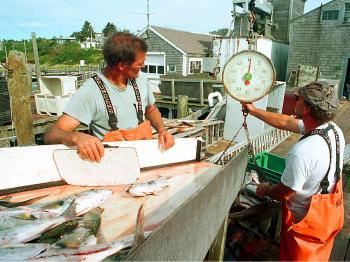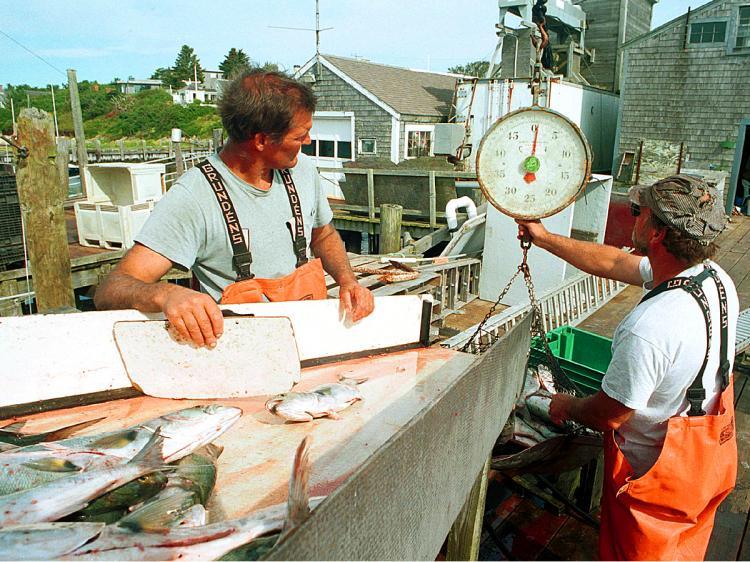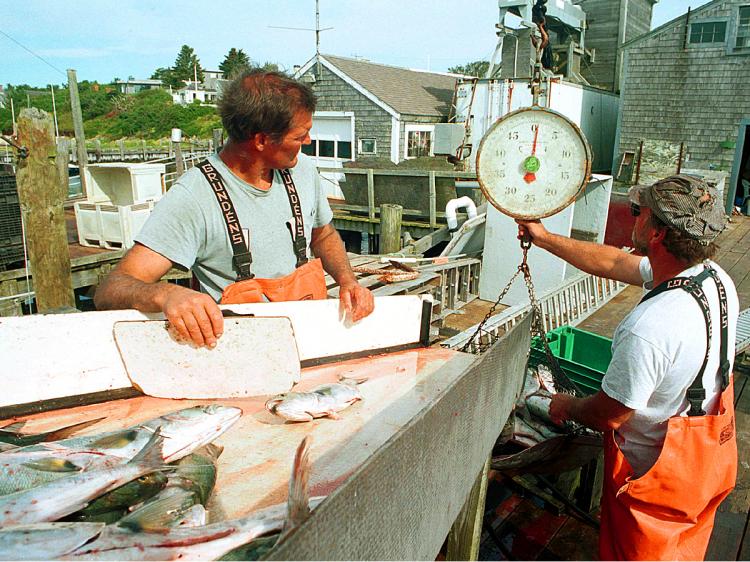BOSTON—This week Department of Commerce Secretary Gary Locke rejected Massachusetts Gov. Deval Patrick’s request to increase federal catch limits and his request for $21 million in direct economic relief for the impacts caused by the transition to “Catch Shares.”
According to the National Oceanic and Atmospheric Administration (NOAA), the catch share program is a “general term for several fishery management strategies that allocate a specific portion of the total allowable fishery catch to individuals, cooperatives, communities, or other entities. Each recipient of a catch share is directly accountable to stop fishing when its specific quota is reached.”
According to many in Massachusetts, the policy has hurt Massachusetts fishermen.
In his letter rejecting the governor’s request, Locke said, “I stand ready to increase catch limits whenever new scientific data are available that meet the requirements of the Magnuson-Stevens Act.” The Magnuson-Stevens act is the primary law that governs marine fisheries in the United States. About the $21 million aid, Locke said, “the data provided are insufficient to warrant either a fishery disaster or a commercial fishery failure under that act.”
The mayor of New Bedford, Mass., Scott Lang, held a meeting in December for fishermen who were frustrated that their livelihoods were in jeopardy. According to him and other experts, the area has not been overfished; in fact it is under-fished. He said, “Not only are we not overfishing, we’re underfishing dramatically—and you are going to collapse this industry.” According to Lang, because the regulations are too strict “people are beginning to receive notices on their cars. Kids’ college tuitions are not being paid. Marriages are being tested.”
At that meeting, fisherman Jim Keding expressed his frustration when he said, “I am going down, and I am going down fast.” Keding said Sen. John Kerry’s office was fighting for him.
Critics say because of the law, only the largest fishing companies can remain in business. One such business owner, Carlos Rafael, has benefited from the regulations because his competition has been limited. Although he has benefited financially, he too is not happy with the regulations and welcomes competition. At the meeting he said, “There is no reason whatsoever for people to be on unemployed at the moment, because there is enough fish in the ocean right now for these people all to fish without having all these people having to collect unemployment, and without overfishing.”
In a press release, Sen. Scott Brown called the decision from the Department of Commerce “a jobs killer.” He stated, “I am deeply troubled by Secretary Locke’s refusal to raise catch limits, despite clear evidence that it is both economically and scientifically sound. Our fishermen are struggling to keep their jobs and make a living. They deserve fair treatment from the federal government, instead of job-killing regulations that prevent them from putting food on the table for all of us.
“This blatant disregard for our fishing industry must stop immediately, and I strongly encourage Gov. Patrick to appeal this ruling and request further meetings so the Commerce Department can fully explain their misguided decision,” Brown concluded.
According to the National Oceanic and Atmospheric Administration (NOAA), the catch share program is a “general term for several fishery management strategies that allocate a specific portion of the total allowable fishery catch to individuals, cooperatives, communities, or other entities. Each recipient of a catch share is directly accountable to stop fishing when its specific quota is reached.”
According to many in Massachusetts, the policy has hurt Massachusetts fishermen.
In his letter rejecting the governor’s request, Locke said, “I stand ready to increase catch limits whenever new scientific data are available that meet the requirements of the Magnuson-Stevens Act.” The Magnuson-Stevens act is the primary law that governs marine fisheries in the United States. About the $21 million aid, Locke said, “the data provided are insufficient to warrant either a fishery disaster or a commercial fishery failure under that act.”
The mayor of New Bedford, Mass., Scott Lang, held a meeting in December for fishermen who were frustrated that their livelihoods were in jeopardy. According to him and other experts, the area has not been overfished; in fact it is under-fished. He said, “Not only are we not overfishing, we’re underfishing dramatically—and you are going to collapse this industry.” According to Lang, because the regulations are too strict “people are beginning to receive notices on their cars. Kids’ college tuitions are not being paid. Marriages are being tested.”
At that meeting, fisherman Jim Keding expressed his frustration when he said, “I am going down, and I am going down fast.” Keding said Sen. John Kerry’s office was fighting for him.
Critics say because of the law, only the largest fishing companies can remain in business. One such business owner, Carlos Rafael, has benefited from the regulations because his competition has been limited. Although he has benefited financially, he too is not happy with the regulations and welcomes competition. At the meeting he said, “There is no reason whatsoever for people to be on unemployed at the moment, because there is enough fish in the ocean right now for these people all to fish without having all these people having to collect unemployment, and without overfishing.”
In a press release, Sen. Scott Brown called the decision from the Department of Commerce “a jobs killer.” He stated, “I am deeply troubled by Secretary Locke’s refusal to raise catch limits, despite clear evidence that it is both economically and scientifically sound. Our fishermen are struggling to keep their jobs and make a living. They deserve fair treatment from the federal government, instead of job-killing regulations that prevent them from putting food on the table for all of us.
“This blatant disregard for our fishing industry must stop immediately, and I strongly encourage Gov. Patrick to appeal this ruling and request further meetings so the Commerce Department can fully explain their misguided decision,” Brown concluded.






